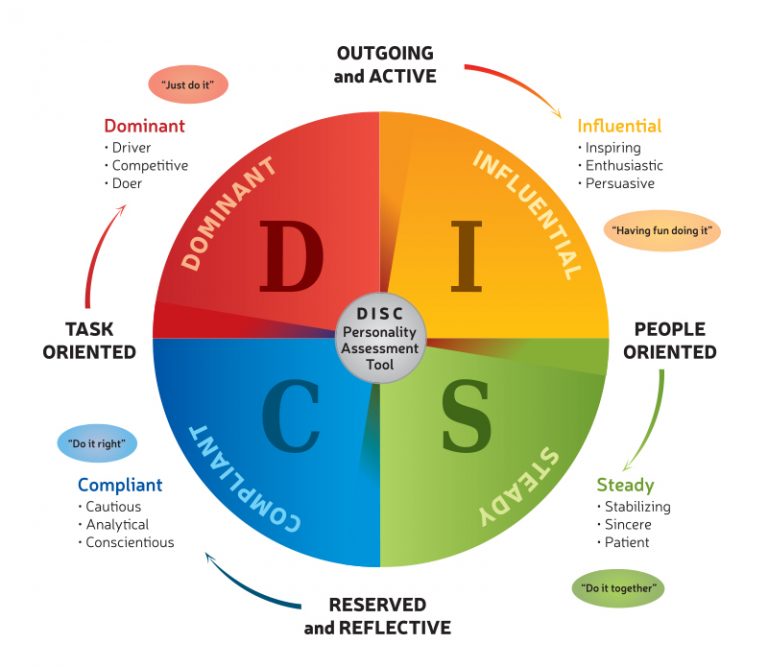Understanding ourselves is the first step towards understanding others
Profiling and Assessment can be used with great effect before, during and after employment. From recruitment, to managing the employment relationship, developing effective teams or even providing outplacement support, profiles can help unlock hidden potential and identify possible barriers to an individual or team’s success.
Assessment & Profiling
What does it feel like before, and as you complete, a profiling or assessment tool? You most likely experience some nervousness about it, have some questions you want answers to, or even feel cynicism at the thought that any tool can tell you anything much, or new, about yourself.
We usually think we know ourselves pretty well and that there’s nothing particularly useful or ‘extra’ an assessment can give us.
Your experience of completing a profile or assessment may have only served to confirm this, or you may have had a pleasant surprise and found it moderately insightful or even extremely enlightening.
The truth is, just like with many things, there is a plethora of tools out there claiming to measure just about anything, from your mood to your emotional intelligence to your leadership style to your suitability for job x or job y…
Here are 3 questions to help you know what you are dealing with:
- What level of diagnosis is this providing?
- What explanatory value does it have?
- What predictive power?
1. What level of diagnosis?

Think about a health check, and the difference between a pulse check, a blood test and an MRI scan. Each one will tell you something about the state of your body, but a doctor would make a choice about which was most relevant in helping reach a diagnosis. They don’t have the same range, or power, or specificity of diagnosis.
With assessments, we likewise have a complete spectrum of everything from the pop quiz (are you a donkey or an eagle personality?), to a profile that gives you a broad read of your strengths, interests or style, right through to the MRI type assessment, which offers a really in-depth behavioural or personality analysis. It’s really important to be clear on what any assessment does and doesn’t do. A pulse check won’t tell you if you have an iron deficiency. A blood test won’t tell you whether you need a hip replacement.
If you are choosing a profiling or assessment tool for use with others, then what are you wanting to know about them, or wanting them to know about themselves? What is your end goal?
2. What explanatory power?

If an assessment can explain something really useful to you, then it becomes much more valuable. For instance, my results may describe me as reflective – I like to think a lot. Yes, I know that about myself and I agree – but how does that help me?
Many assessments only go that far.
Now, what if I could understand when that reflectiveness enables me to make a positive contribution and when it causes me frustration? Or, when it causes others frustration (especially people who are ‘in a hurry to decide and act’); I would then be able to develop some strategies to manage myself and work better with others.
Now, that would be really useful!
You can agree with an assessment that gives you a descriptor of behaviour, strength or interest but you can’t always see what to do with that information. When there is explanatory or prescriptive information; ‘this is why, and this is what you can do with this information’, then the insight becomes much more powerful.
3. What predictive power?

Validity is important, and is particularly so if you are needing to assess a person against some criteria, such as job fit, or suitability for a certain role. They need to see the face validity and you need to know that there is some predictive validity.
Face validity is about ‘do I see the connection between this measurement and the thing I am being judged for?’ If the test items are about which animal I think I am most similar to, then I am unlikely to think it really has much to do with my suitability for a job as a technician! Whereas if the questions are about my level of interest in or how I approach technical problems or how much success I have had in solving technical problems, then that is hugely more convincing.
Predictive validity measures how accurately a test indicates that, for example, ‘people with this range of scores or this combination of scores have been shown to do well in x roles’. There is a difference between a hunch that something may be predictive and actually checking that it is. We may think for example that people who are more ‘decisive’ do well in leadership roles, so if a tool is claiming to measure decisiveness, then we can use it to select someone for a leadership role.
What is DISC theory?
The DISC model is an easy-to-use but very accurate theory to understand human behaviours. It provides an increased level of self-awareness and awareness of others through a common language and framework of understanding.
According to William Moulton Marston’s research, published in the book “Emotions of Normal People” in 1928, people’s behaviour is based on an individual’s perception of and reaction to a situation.
Marston narrowed this into four behavioural types of styles which are sometimes referred
to as DISC personality types:
D Dominance (with description)
I Influence/Inducement
S Steadiness/Submission
C Compliance
Whilst most people will show all four of these behaviour patterns at times, an individual will display one or more of them consistently in the workplace. This is because each person develops a behavioural style which places particular emphasis on certain postures and less emphasis on others.

Contact us if you wish to use profiling or intelligence testing for organisation or individual needs.
How can DISC assessments be used?
In 1958, Dr Thomas Hendrickson developed the Thomas Personal Profile Analysis (PPA) assessment based on Marston’s theory. DISC profiling is a quick but very effective way to understand an individual’s workplace behaviours, giving you a greater level of understanding of their capabilities and how they are likely to act.
This information can be used to answer a variety of questions such as :
- What motivates them?
- What are their strengths and limitations
- What is their preferred communication style
- How do they interact with their peers and team?
- How do they behave under pressure?
- Are they showing any frustrations in their current situation?
- What management or coaching style will get the best out of them?
Let's Chat!
If you’re seeking to transform your future today, have a conversation with us!
That starts with a quick conversation to establish your professional background and needs. Get closer to your goals right now by filling out the simple form below.
All information is held in the strictest confidence.
